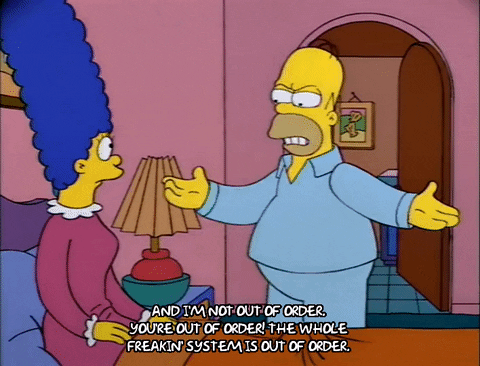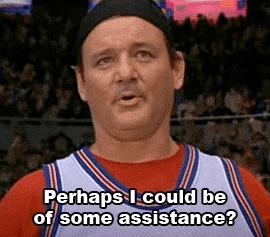#24: Parts of the Whole
On fighting the good fight, even when we’re tired and think we can’t have any impact.
We talk a lot about systems.
We talk about what is wrong with the system. How the system needs to change. We declare that the system needs to be fixed, as if it were a burned-out lightbulb.
It’s then that we stall.
How many people does it take to change a lightbulb? I mean, it’s the system. It’s amorphous, unwieldy. Not easily wrangled, captured and tamed.
We freeze, daunted, and it’s not long before we resume the refrain that the system needs to change, buttressed with the knowledge that it’s up to someone else, some other group, inside or part of the system.
And when we attribute problems to this faceless system, it absolves us of any responsibility.
I mean, I can’t change a system.
But maybe we can - once we reframe our operational definition of the “system”:
Complaining about the “system” without acting, however, is to assume that “some kind of mythical top” will reform it, he continues. “Well that isn’t going to happen. It’s us at the bottom who are going to reform it. We’re going to reform it by changing our behaviour, and that will start to filter up.”
Brian Eno, We’re All Hypocrites, But We Can’t Help It.
There was a strategy on the track and field teams I was on in elementary and middle school. While each race had its own winners, there were points given to the top six places to go towards the overall team placement. So while everyone focused on winning, our coaches pushed us to work hard and just make sure we got in that top six.
We didn’t need everyone to break records, or come first every time. It wasn’t a lost cause if we were off the podium. They just needed each of us to give a damn and run, jump and throw like hell in our own little piece of the competition.
It would irritate the hell out of other schools, because it wasn’t our athletes on top every time. But we would have a presence in every event, and we would win the entire meet, year after year.
The system worked.
If we accept the idea that we’re all part of the system, we can then all do something to make it better. It still seems such a monumental task, though. There are so many problems with the system, and focusing on that fact can paralyze the good-intentioned. I’ve felt at times like I’m part of the biggest group project there is, and yet despite my best efforts we won’t ever get close to that A+. Hell, we won’t even get a pass at this point. The task of fixing the system quickly suffocates and overwhelms.
But similarly, where we needed to redefine system to recognize our own individual role in it, we also need to redefine the scope of the problem:
You can’t save the whole world, and there’s no moral imperative saying that you need to. Be good to yourself. Be good to those around you. And rather than worrying about what you need to do, take a moment to ask yourself what you want to do instead.
John-Paul Flintoff, In Defense of Not Saving the World
Forego the saviour complex for every issue that crosses your line of sight. And to focus on sweeping systemic changes is a fool’s errand at best, and at worst, an excuse for doing nothing at all:


Change the system.
Fix the system.
The thing is - we are the system, and while we can’t change it all, we can move the needle forward in a few areas.
Imagine then, if we all did that? What a team win that would be.







I love this. Not being able to change it all ourselves is no excuse for not doing what we can in our own spheres. We can all make little differences, and those add up.
Really resonated. "The system" as a mental construct feels impenetrable, immovable, but it's made of parts and people and processes, and it's worthwhile to try to make small changes where it feels possible, so I don't feel like I just sat back and shrugged.